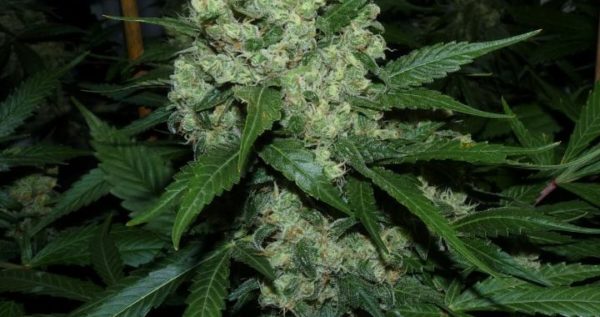A prohibitionist argument beloved of the Police is that cannabis should stay illegal because it now contains much more THC than it used to. This is commonly employed as a counterargument to imply that, even though the dangers of cannabis use have been massively exaggerated, it should still be illegal, because the warnings have become accurate over time. This article explains why this argument is false.
This BBC article is a good example of the ridiculous propaganda that people have been exposed to over the years. It claims that “high-potency cannabis or skunk” is a completely different form of cannabis to the herbal cannabis that people usually smoke. This is done in an effort to make people think that the threat posed by legalisation is categorically more extreme than it was in the past.
It’s true that some cannabis strains today are much, much stronger than what used to exist, despite the nostalgic recollections of old hippies. Breeders have had decades to experiment with these strains, and some of them have cultivated varieties that are much higher in THC than anything that could have existed previously.
Because a high-THC strain will offer more of a buzz per unit of volume, it naturally makes for a superior product from a criminal point of view. The greater the buzz per unit of volume, the easier it is to transport, to hide and to smuggle. Black market dealers can charge more if their product gets a reputation for being superpowered, and all of this has caused high-THC strains to dominate the market in many places.
Although it’s true that a high-THC strain of cannabis can create unwanted reactions, particularly by producing a more intense experience than desired, this is only a problem if cannabis is sold on the black market. Like many of the arguments for cannabis prohibition that appeal to the harms of cannabis, further investigation shows that the harm is caused by prohibition and not by cannabis itself.
A high-THC strain of cannabis can get a person stoned faster than a low-THC strain, and perhaps also more heavily, but this is not anything close to a legitimate argument in favour of cannabis prohibition. The safest way to protect people from getting a more intense buzz than they wanted is actually to legalise cannabis, for two reasons.
Legal, properly regulated cannabis means that whatever a person consumes must be clearly labelled with a cannabinoid profile. This means that the user will know what they’re getting. If a person is inexperienced with cannabis they might want specifically to avoid a high-THC strain or to use a high-CBD strain. Even if they are experienced, they might want to know they’re using a high-CBD strain.
As mentioned elsewhere, only legal cannabis can make this possible, because only cannabis produced by legitimate white market professionals will be tested and analysed to determine its precise cannabinoid profile. Therefore, only legal cannabis can ensure that the user knows what they’re getting and can take the appropriate measures.
This approach synergises with having honest education about cannabis use at high school level. In the same way the high schoolers are educated about sex, driving and alcohol, an honest approach would see them educated about cannabis as well. Part of this approach would involve being told that high-THC strains can provoke effects that are more powerful than intended.
The second reason is that regulating cannabis makes it possible to pass a law, as has been done in some American jurisdictions, so that the recreational cannabis being sold in shops must contain a minimum percentage of CBD. This is done with the intent of minimising psychotic responses, as there is evidence that the CBD in cannabis has an anti-psychotic effect that balances that psychotogenic effect of the THC.
Regulation means that the circumstances in which people use cannabis can be controlled with a view to preventing adverse outcomes such as overdoses on super high-THC skunk. Even if it was not deemed necessary to legislate for a minimum CBD level for all cannabis, it could be ensured that the cannabis consumed publicly in cafes had such a limitation.
Prohibiting cannabis because of the fear of high-THC strains is like prohibiting alcohol because absinthe exists. It’s a dumb move that just leads to more suffering in the end. It would be much better to legalise cannabis so that people both knew how to use cannabis properly and also the chemical makeup of any strain they may wish to use.
*
This article is an excerpt from The Case For Cannabis Law Reform, compiled by Vince McLeod and due for release by VJM Publishing in the summer of 2018/19.

